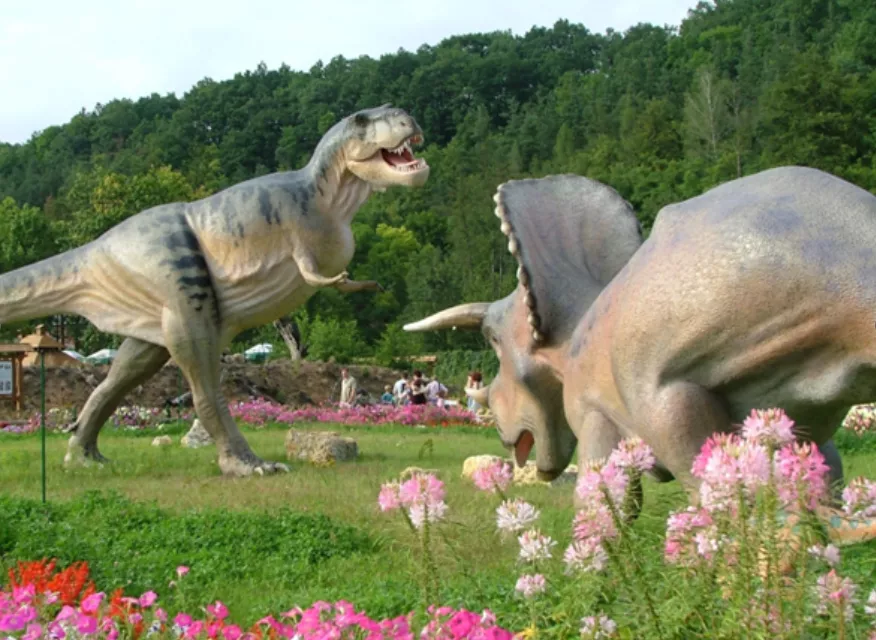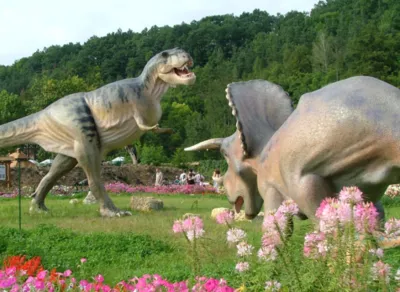Summary
The Bałtów social economy cluster in Poland is an initiative dating back to 2002, launched by three actors with complementary expertise in culture, business management and social inclusion. The overall objective was to develop the local economy on the basis of a coherent tourism product which would create jobs, build community spirit, restore heritage, and improve infrastructure to facilitate business development.
The cluster has helped to turn a declining, post-industrial village in central Poland into a vibrant touristic centre. It offers a range of activities from rafting trips on the local river to a comprehensive tourist product comprising the first Jurassic Park in Poland, a horse riding centre, winter sports, questing, and welcoming around 500 000 tourists annually. In addition to creating near 300 jobs for the local inhabitants and supporting emerging businesses, such as 35 rural tourism farms, the project has created strong links with the local community.
Results
- Establishment and continuous development of a long-term, self-sustaining project: the initiative has successfully applied for a range of funding opportunities, including the EU EQUAL initiative, European Social Fund (ESF), European Agricultural Fund for Rural Development (EAFRD), Swiss Aid for Poland.
- Reversal of unfavourable trends in the countryside such as unemployment and depopulation by creating a local product that attracts tourists, stimulating the local economy and resident activity. Since 2010, the Bałtów tourist complex welcomes an average of 500 000 visitors per year.
- Creation and consistent implementation of a development strategy based on democratic, bottom-up processes.
- Development of new initiatives within the community. In 2002, there were no NGOs or local initiatives. Presently, the community boasts eight NGOs, three folk groups, seven volunteer fire brigades, and a seniors' club, illustrating Bałtów’s substantial growth and engagement.
- Establishment of a good-practice model inspiring activity among residents and local leaders, including those from neighbouring areas.
- Cooperation among various interest groups and individuals from different sectors: negative behaviours have shifted to cooperation, notably seen through the establishment of new agri-tourism farms, networking tourist attractions, and joint marketing efforts. These have led to the creation of two cluster initiatives.
- Creation of over 300 jobs directly within the complex, with additional jobs arising from new initiatives and businesses.
Resources
Documents
Context
The Ostrowiec county, in southeastern Poland, has experienced significant socio-economic changes, transitioning from a monoculture industrial sector to embracing new technologies and innovative activities. This shift was prompted by the need to address the region's challenges, including escalating unemployment rates and a drain of young talents.
Research conducted by the Institute of Geography at Świętokrzyski University scientifically evaluated the tourist appeal of counties like Ostrowiec. Using the typological method based on the Hellwig development model, the study highlighted the potential for economic advancement through tourism.
Consequently, a group of local stakeholders working around Ostrowiec embarked on a series of forward-thinking initiatives to enhance the region's sustainability in a contemporary manner. This included the creation of a social economy cluster in the village of Bałtów, in the Ostrowiec county.
Objectives
-
Build civil society by promoting social entrepreneurship and fostering cooperation within the community;
-
Develop a tourist infrastructure that showcases the landscape and cultural heritage of the region;
-
Create new employment opportunities and foster economic development through the enhancement of the tourism offer;
-
Address the pressing issues of unemployment, lack of investment, and absence of social integration in the Bałtów municipality.
Activities, key actors, and timeline
Based on an initiative dating back to 2001 started by over a hundred residents of the Bałtów municipality, a local partnership was established. It began by setting up a development programme and launching the organisation's headquarters and a community club in the former building of the local cultural centre in April 2002.
The group held various workshops to activate the rest of the local community, including women who sought to run an agri-tourism farm.
The second phase involved creating a branded local product to attract tourists to the village of Bałtów, Ostrowiec county, by:
-
launching rafting activities on the Kamienna river and developing tourist-friendly infrastructure since 2002;
-
discovery of dinosaur tracks from the Jurassic period in several locations in Bałtów by scientists from the Polish Academy of Sciences;
-
using the discovery as a driver for the reconstruction of an Allosaurus dinosaur and subsequently establishing the first Jurassic Park in Poland;
-
conducting an extensive promotional campaign via television, radio, national press, and participating in national tourist fairs.
Success factors/lessons learnt
-
Achieving a healthy balance between economic and social aspects is crucial for the success of this type of project.
-
Effectively demonstrating to participants how aid systems, created by the public or private sectors, or NGOs, can improve living conditions is a key challenge for the social economy.
-
Ambitious goals, such as sustainable development, economic and social empowerment of residents, unemployment reduction, and fostering local community and civil society, can be attained through a consistent implementation strategy.
-
The project's success is evaluated via relevant statistical indicators, it is not merely a subjective assessment. The project's sustainability over a period of 20 years demonstrates its effectiveness and replicability in various parts of Poland.
Contacts
Jarosław Kuba, President of the Krzemienny Krąg LAG: biuro.baltow@wp.pl, + 48 506151191

